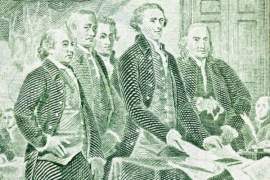
Affirmative Action

Popular In Constitution
Purpose Of Lifetime Appointment And Pros And Cons Enumerated Powers Bicameral Legislature Background Article 3 Of The Constitution We The People 1st Amendment Who Wrote The Constitution Judicial Review Equal Protection Clause 5th Amendment 10th Amendment Three Fifths Compromise
Affirmative Action was a legislative process that was established with the hopes of providing equal opportunity to minorities. Due to the egregious political, ethical, and human injustices that were suffered by minorities over the course of the history of the United States, the U.S. Supreme Court established the validity of the construct of Affirmative Action in 1964, subsequent to the Civil Rights Act passed in the same year. The precepts set forth in the 1964 Civil Rights Act constituted the end of discrimination within the United States. However, akin to other renowned, complex rulings by the U.S. Supreme Court, Affirmative Action has been the subject of massive amounts of scrutiny.
On the one hand, Affirmative Action is regarded as a long overdue institution of civil rights to minorities in the wake of centuries of prejudice, discrimination, and racism endured by them. On the other hand, those who oppose Affirmative Action view it as ironic overcompensation, awarding of preferential treatment in lieu of past discrimination.
In the 1978 case of Regents vs. The University of California, a case which disputed Affirmative Action, was brought before the U.S. Supreme Court. Bakke, a white male, had been denied acceptance to the medical school of the University of California, an educational institution which had been upholding the policies of Affirmative Action. However, upon further investigation, Bakke discovered the existence of countless minorities enrolled in the medical program whose credentials for acceptance were far inferior to his. As a result, he brought his case to be heard by the U.S. Supreme Court.
He maintained that due to the parameters of Affirmative Action, as a white male he had become the victim of discrimination. The U.S. Supreme Court ruled in favor of Bakke, explaining that race, not achievement, had set the guidelines for acceptance, which was ruled as unconstitutional.
Almost immediately, lobbyists on both sides of the debate regarding Affirmative Action argued feverishly on behalf of their respective positions. Advocates for the Affirmative Action program maintained that due to a myriad of opportunities denied to them, minorities were indeed entitled to preferential treatment. The opponents of Affirmative Action labeled its practice as the utilization of an innately unconstitutional praxis in order to rectify a past unconstitutional praxis. In addition, they explained that Caucasian individuals should not be punished for the reprehensible actions of their predecessors.
In 1997, under Proposition 209 established by the California Supreme Court, the State of California banned Affirmative Action, claiming that it was a practice that allowed for the allowance of superior treatment to minorities, which were listed to include anyone that is not considered to be a Caucasian male.
NEXT: What Is Censorship





















